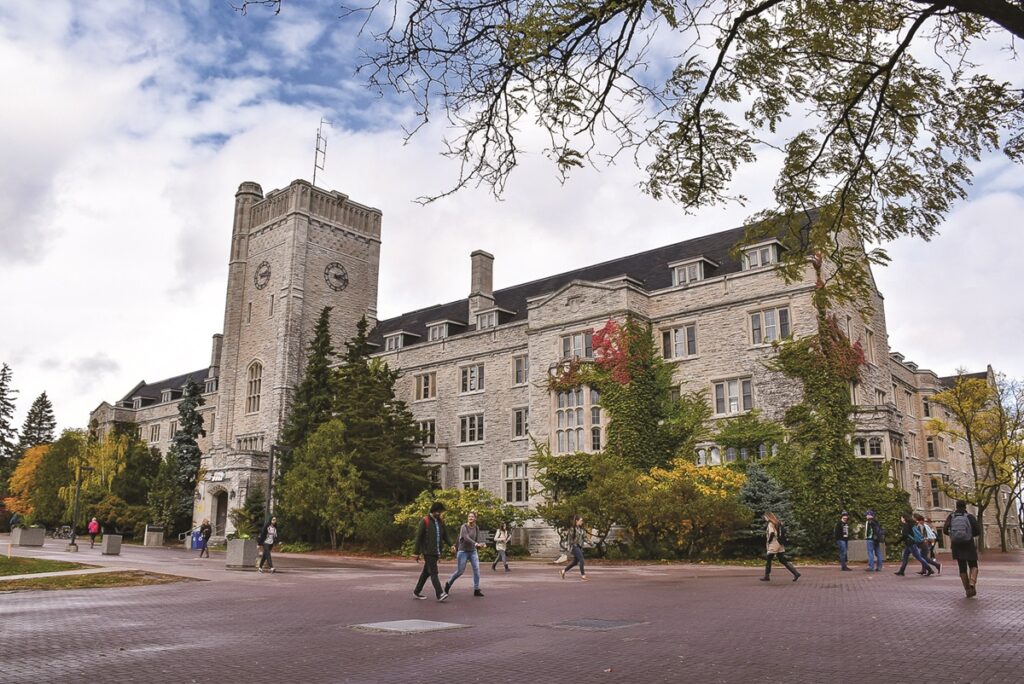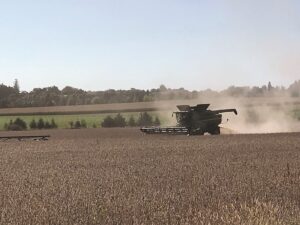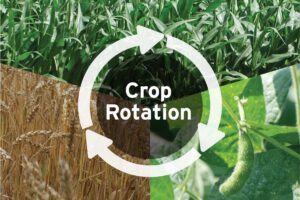Legacy Scholarship winners
NINE ONTARIO STUDENTS HONOURED

THE ONTARIO GRAIN AND OILSEED INDUSTRY employs more than 90,000 people — but finding qualified people to fill those jobs is becoming increasingly difficult. According to a Canadian Agricultural Human Resource Council study, the estimated demand for agricultural workers will continue to grow through 2029, with a potential of 47,300 jobs in the broader agricultural sector going unfilled.
And, as technology in the agriculture industry continues to evolve, the demand for skilled workers — with diverse training in fields such as electronics, computer science, and engineering — will be just as needed as those with more traditional training in agronomy, plant breeding, or soil science.
“A career in agriculture can be in science, technology, finance, law, communications, public policy — it is a wide-open field with endless potential,” says Crosby Devitt, CEO of Grain Farmers of Ontario.
Recognizing the need to encourage the pursuit of education in disciplines that will benefit the agriculture industry, Grain Farmers of Ontario launched its Legacy Scholarship in 2022. The scholarships are funded by the Grain Farmers of Ontario Legacy Fund, which was created when the Grain Farmers of Ontario Wheat Marketing was eliminated in 2021 — changes in regulations allowed for the transition of the wheat marketing fund into the Grain Farmers of Ontario Legacy Fund. The original wheat marketing fund was formed using contributions from existing assets from the three founding organizations (Ontario Wheat Producers’ Marketing Board, Ontario Corn Producers’ Association, and Ontario Soybean Growers).
2023 WINNERS
The Legacy Scholarship program received 140 applications in its second year, a 40 per cent increase from its inaugural year in 2022. Nine students received a $5,000 scholarship.
“Grain Farmers of Ontario is dedicated to empowering members of our agricultural community for success, extending our support to students aspiring to play a pivotal role in the future of Ontario’s agriculture and agri-food industries,” says Brendan Byrne, chair, Grain Farmers of Ontario. “We were impressed by the exceptional quality of the applications we received and anticipate remarkable contributions from the nine students we have selected.”
Isabelle Aicklen is pursuing a PhD in weed science at the University of Guelph, where she is studying Group 4 herbicide resistance of green pigweed.
“My long-term career goal is to help farmers manage herbicide resistance and learn more about alternative weed control strategies such as nano-technology, electrical weeding, and harvest weed seed control,” says Aicklen.” I would like to become a professor of weed science or work in industry to develop strategies that can be implemented on Ontario farms in the major field crops.”
Evan Dowd is pursuing a BA in economics at Wilfrid Laurier University in Waterloo. Dowd hails from a grain farm in Perth County and has worked at Atwood Farm Supply for five years.
Dowd says his plan following graduation in 2024 is to find a job that will allow him to combine his economics degree, work experience, and grain farming background. “I enjoy economic modelling and forecasting and look to find work that would allow me to develop those skills further.”
Caleb Fretz is enrolled in the biological engineering co-op program at the University of Guelph. His co-op placements have included working at Purdue University in West Lafayette, Indiana, as a visiting researcher, where his research focused on developing scalable nanomaterials for agrochemical delivery.
“My goal is to apply my technical engineering skills to real-world problems and seek solutions to benefit the agri-food industry,” says Fretz. “This approach is needed now more than ever as the industry is struggling to shift from the ‘green revolution’ to a new agri-tech revolution.”
Lauren Miller is an M.Sc. candidate in rural planning and development at the University of Guelph. Miller is passionate about farmland preservation and plans to work as a rural planner after graduation.
“As a student in rural planning in Ontario, I’m proud to be part of an industry that will play an essential role in creating the future of the Ontario grain sector and agri-food industry,” says Miller. “With my knowledge and experience, I’m confident that I can help find innovative solutions to current challenges and develop strategies that will lead to better long-term outcomes for the industry.”
Ryan Miller is pursuing a law degree (juris doctor) at the University of Ottawa — following an undergraduate degree in political science and public policy. Miller says that work at Agriculture and Agri- Food Canada and with Senator Rob Black inspired him to become an “agvocate.”
“I hope that my career will inevitably involve continuing to support farmers on a policy level, where I will use my juris doctor to become an advocate sector-wide,” says Miller. “The success of Canada is best supported by continued policy craft that focuses on our invaluable agricultural economy and food systems.”
The Legacy Scholarship program received 140 applications in its second year, a 40 per cent increase from its inaugural year in 2022. Nine students received a $5,000 scholarship to support their postsecondary education.
Scott Moore is studying plant breeding in genetics in pursuit of an M.Sc. degree at the University of Guelph. Working with Dr. Istvan Rajcan, Moore is investigating soybean cyst nematode (SCN) resistance genetics.
“My research in soybean breeding and genetics will benefit the Ontario grain sector by improving resistance to SCN, which is single-handedly the most destructive pest in Ontario soybean production,” says Moore. “Given that soybeans are the highest-acreage crop in Ontario, and other management practices are of limited effectiveness, it is of great importance to identify new genetic SCN resistance to maintain the integrity of Ontario soybean production.”
Julianna Tindall is a University of Guelph student pursuing a B.Sc. in agriculture, majoring in crop science. Tindall is currently working on a wheat research project with Dr. Helen Booker. She plans to pursue a master’s degree following graduation.
Tindall’s future goal is to become a plant breeder. “As a plant breeder, I will have the opportunity to work on projects which will improve the quality of products for farmers across Canada,” she says.
Lorraine Vandermyden says that a passion for food security and a keen interest in protecting the environment led her to pursue a B.Sc. in agriculture from the University of Guelph; she is now pursuing an M.Sc. in environmental science. Her research focuses on the impacts of nitrogen management and cover crop practices on greenhouse gas emissions in winter wheat production.
“Through research like mine, we can develop improved recommendations for management practices that producers can use to benefit their productivity and reduce emissions,” says Vandermyden.
Matthew Whittemore is a crop science major pursuing a B.Sc. in agriculture from the University of Guelph, with plans to pursue a master’s degree in environmental science after graduation. Whittemore is currently working with Dr. Hugh Earl on a soybean micronutrient deficiency trial.
“Providing farmers with the knowledge of clear plant symptomology would allow better diagnostics and more efficient fertilizer applications, especially when using a variable rate applicator,” says Whittemore. “Real world applications that actually reach farmers and have a beneficial impact is the work I strive to accomplish throughout my career.”
NEXT APPLICATION INTAKE
The Grain Farmers of Ontario Legacy Scholarship will open for applications in the summer of 2024. •


























